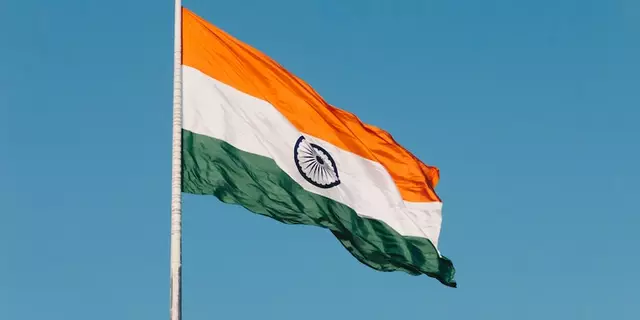27 Jan
|
21:32 PM
|
0

Exploring the Impact of the Ken-Betwa Link Pact on India's Water Security
The Ken-Betwa river linking project is a historic agreement between the government of India and the state of Madhya Pradesh. By inking the pact, Prime Minister Narendra Modi has taken a major step towards addressing India's water security crisis. The project is the first of its kind in India and will link the Ken and Betwa rivers in Madhya Pradesh.The project is expected to bring great benefits to the state of Madhya Pradesh, where water scarcity is a major problem. The project will provide more than 800 million cubic meters of water annually to Madhya Pradesh, leading to improved irrigation and drinking water facilities. Additionally, the project is expected to generate 2,100 million units of electricity annually, which will significantly reduce the state's dependence on coal-based power plants.
The project is also expected to have a positive impact on the environment. The link pact will create new wetlands, which will help to support a variety of wildlife. This will help to maintain the biodiversity of the region, and will also provide a habitat for endangered species.
Overall, the Ken-Betwa link pact is a great step forward in India's water security efforts. By providing more water to the state of Madhya Pradesh, the project will help to reduce water scarcity and improve the quality of life of its citizens. In addition, the project's environmental benefits are sure to be felt for years to come.
Examining the Significance of PM Modi's Historical Endorsement of the Ken-Betwa Link Pact
The Ken-Betwa link pact is a major watershed moment for India's water resources management. This agreement, signed on the 23rd of December 2020, is the first of its kind in India and has been heralded by Prime Minister Narendra Modi as a “historic step”. It is intended to address the critical water scarcity problem that plagues both states of Uttar Pradesh and Madhya Pradesh.The pact will allow both states to share water from the Ken River in Madhya Pradesh with the Betwa river in Uttar Pradesh. This will help provide irrigation to more than 6 million hectares of land in the two states, enabling the farmers of both states to have access to abundant water supplies. The project is estimated to cost around Rs. 9,000 crore, and will also help in flood control and provide for additional drinking water sources in the two states.
The Ken-Betwa link pact is also seen as a major step forward for India's water resources management, which has long been plagued by inefficiency and mismanagement. The project is expected to open the door for other similar inter-state water sharing arrangements, which will help to ease water scarcity issues in other parts of the country.
The historical endorsement by Prime Minister Narendra Modi is also a significant moment for India's water resources management. By endorsing the Ken-Betwa link pact, the Prime Minister has signalled his government's commitment to addressing India's water scarcity issues. This could also provide a much-needed boost to the government’s efforts to improve the overall water resources management infrastructure in the country.
Overall, the signing of the Ken-Betwa link pact is an important milestone for India's water resources management. The historical endorsement by Prime Minister Narendra Modi is a testament to the government's commitment to addressing India's water scarcity issues. It is hoped that this project will open the door to more inter-state water sharing arrangements in the future, and help to alleviate India's water scarcity problems.
Unveiling the Benefits of the Ken-Betwa Link Pact to India's Ecological System
The Ken-Betwa link pact is a major milestone in India’s water conservation efforts, and Prime Minister Narendra Modi declared it a “historic moment”. By inking this pact, India will be able to bring a large portion of the Ken and Betwa rivers under its control and use the water to meet its growing demand for irrigation and drinking water.This pact is crucial for the conservation and management of India’s natural resources and will provide a much-needed boost to India’s ecological system. The two rivers together form an important part of India’s water system and through this pact, India will be able to ensure that the water is managed and distributed more efficiently.
The Ken-Betwa link pact will also have a positive impact on India’s agricultural sector. By linking the two rivers, the water can be diverted to areas where it is needed most, thus increasing the productivity of the land. This in turn will benefit the farmers and increase their yield. Moreover, the link pact will also help in providing irrigation facilities to the dry and arid areas of the country.
In addition, the Ken-Betwa link pact will also be beneficial for the wildlife in the country. The link pact will help in increasing the water resources of the country, which will in turn increase the water flow in the rivers and consequently, the biodiversity of the species living in the area.
The Ken-Betwa link pact is a major step forward in India’s water conservation efforts and will be a boon to the country’s ecological system. It is a welcome move and will help in providing a much-needed boost to India’s water resources.
Analyzing the Challenges of Implementing the Ken-Betwa Link Pact in India
The Ken-Betwa link pact is an ambitious water-sharing project between the states of Madhya Pradesh and Uttar Pradesh in India. The project is being implemented in order to meet the drinking water needs of both states and improve the irrigation capacity of Uttar Pradesh. This is the first inter-state river-linking project in India, and its completion is expected to bring a number of benefits to both states.However, it is important to mention that there are several challenges associated with the implementation of the Ken-Betwa link project. One of the main challenges is the fact that the project requires the displacement of a large number of people living in the region, which has raised environmental and social concerns. Additionally, the project involves the diversion of a large amount of water from the Ken river, which has resulted in the drying up of some of the tributaries of the Ken river. This has caused significant water scarcity in the region and has resulted in a number of farmers being forced to abandon their farms.
Another major challenge associated with the project is the fact that it is being implemented in a region which is already prone to flooding and drought. The diversion of water from the Ken river could lead to further water scarcity in the region and result in even more water-related problems. Additionally, the project also requires a number of large dams to be built, which could have an adverse effect on the ecosystem of the region.
It is therefore clear that the implementation of the project will require a great deal of planning and careful management in order to ensure that the benefits of the project are realized without any negative environmental or social impacts. The Ken-Betwa link pact could be an important step in helping to meet the water needs of both states, but only if it is implemented in a responsible manner.



